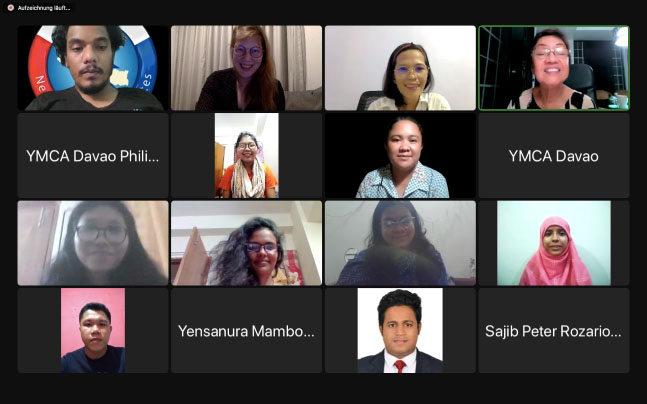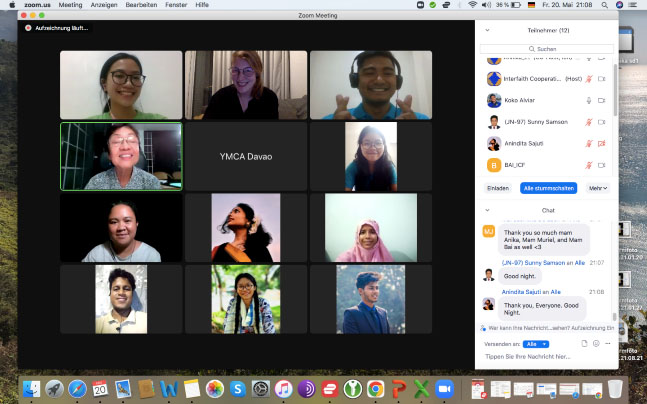9 hurdle Challenges on Writing as a Prophetic Act Towards Peacebuilding
Last Updated (Thursday, 26 May 2022 13:25)
From the 16th to the 20th of May, ICF held a Virtual Thematic Workshop on Basic Journalism: Writing as a Prophetic Act towards Peacebuilding. Sixteen participants from Bangladesh, the Philippines, Nepal, Timor-Leste and Indonesia registered for this one-week virtual workshop. Nine participants successfully finished the workshop by actively participating in the writing exercises. Before the workshop, ICF asked all participants to indicate a topic that interest them to work on during the workshop and submit a news item for the bi-monthly ICF Newsletter: The Peacebuilders.

On the first workshop day, Ronalyn “Len” Olea, president of the National Union of Journalists in the Philippines, introduced the participants to the importance of journalism in promoting justice and peace, and the purpose and elements of good journalism. In her presentation, she introduced 10 elements of journalism from Bill Kovach and Tom Rosentiel’s The Elements of Journalism. One element, for example, is journalism’s obligation to the truth. Another element is that it must serve as a monitor of power. By working in breakout rooms, the participants got the chance to take a deeper look into media ownership in their respective countries to identify, who has power over certain media outlets. She also asked the participants to search for a news item that does not conform with the introduced elements of journalism.
On the second and third days, ICF welcomed Dr. Rose Maxino-Baseleres, who is the Dean of the Mass. Communication Department at the Holy Name University, Tagbilaran. She introduced the inverted pyramid format of a news item: lead, body, and tail. She gave detailed descriptions of the different kinds of leads a news item can start with and how to identify them. As an assignment for the next day, the participants chose a news story, identified the lead of the story and what kind of lead it is, and re-wrote it into a better lead if deemed necessary. The third day mainly focused on copyediting and writing headlines. Maxino-Baseleres explained among other things, the verbal deadwood to the participants and other things to be considered during the writing and editing process. As an assignment, the participants were asked to prepare a short news story on those two workshop days, incorporating what they have learned about leads and headlines.
Days four and five had Vaughn Geuseppe “Koko“ Alviar facilitating. He is a Program Officer at the Ramento Project for Rights Defenders and a teacher for communication and journalism courses at the University of the Philippines-Baguio. The first task for the participants entailed reading two news pieces: a feature, and an opinion piece ahead of the session. It aimed to see if they could identify differences between these two pieces. Alviar pointed out the difference between a feature and an opinion piece to the participants and further explained different news items — where to find them in a paper and what purpose they serve. According to Alviar, “The feature story is the heart of the paper; the editorial is the mind of the paper.” His presentation focused on the basics of the writing process itself —from the ideation, the writing, and on to the final draft. He asked the participants to look into the topics they identified prior to the workshop and to narrow them down by creating an angle tree. On the final day, the participants created an outline for their stories to present during the session. Alviar provided feedback to all presentations. He concluded the session by providing final insights on the ethics of journalism.

ICF is looking forward to publishing the final pieces from the workshop participants in the next four ICF Newsletters: The Peacebuilders.
Annika Denkmann
BftW Seconded Personnel





